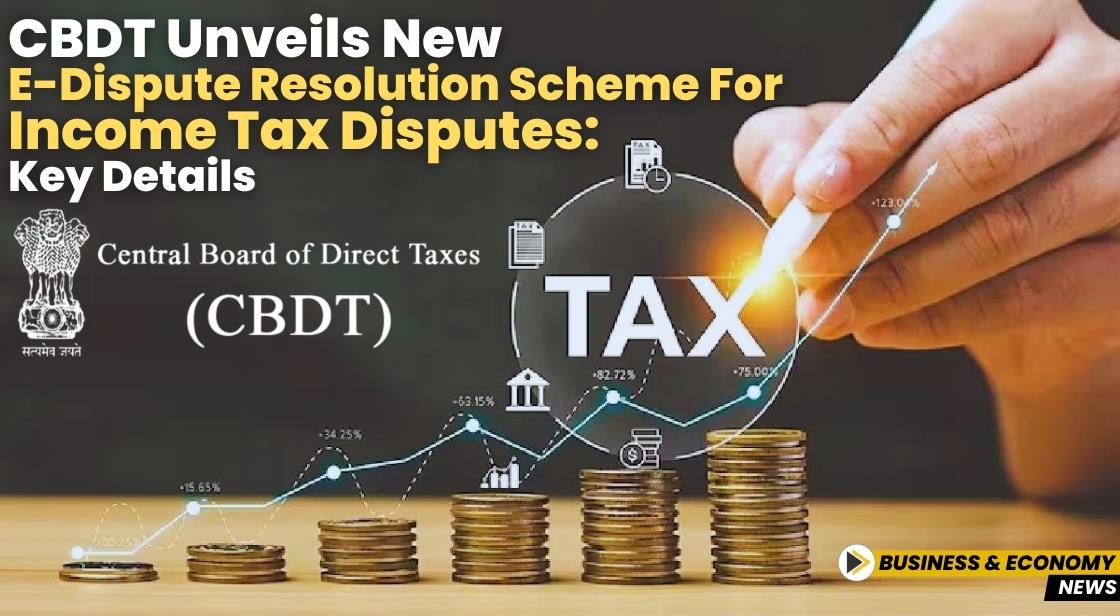CBDT Unveils New e-Dispute Resolution Scheme for Income Tax Disputes: Key Details

News Synopsis
In a major relief for taxpayers across the country, the Central Board of Direct Taxes (CBDT) has rolled out an innovative e-Dispute Resolution Scheme (e-DRS). This online mechanism aims to reduce litigation and provide a streamlined, electronic method for addressing income tax disputes.
The e-DRS is expected to offer a smoother, more efficient way for taxpayers to resolve disputes without having to navigate lengthy legal processes. It's also backed by Section 245MA of the Income Tax Act, which lays the groundwork for Dispute Resolution Committees (DRC) that will handle these cases.
What is the e-Dispute Resolution Scheme (e-DRS)?
The e-Dispute Resolution Scheme (e-DRS) allows eligible taxpayers to file applications electronically to resolve disputes through the Dispute Resolution Committees (DRC). Each DRC is assigned to a specific region under the Principal Chief Commissioner of Income Tax, who holds jurisdiction over the taxpayer. This system simplifies the dispute resolution process and makes it accessible to taxpayers across the country.
How Does the e-DRS Function?
The Central Board of Direct Taxes (CBDT) has laid out clear criteria for taxpayers wishing to opt for e-Dispute Resolution. According to the Board, taxpayers can utilize e-DRS to challenge a ‘specified order’ as outlined in clause (b) of section 245MA of the Income Tax Act. This includes cases where:
-
The total sum of variations proposed or made in the tax order does not exceed Rs 10 lakh.
-
The returned income for the relevant assessment year does not exceed Rs 50 lakh.
-
The order in question is not based on searches, surveys, or information obtained through agreements referred to in Section 90 or 90A of the Act.
Under this scheme, a DRC can make modifications to the variations in the specified order, offering relief to taxpayers by potentially reducing or waiving penalties and prosecution in line with rule 44DAC of the Income Tax Rules, 1962.
How to File an Application for e-DRS?
Taxpayers who wish to take advantage of the e-DRS can file their application electronically using Form No. 34BC as referenced in rule 44DAB of the Income Tax Rules. This form is available on the Income Tax Department's e-filing portal, and the application must be submitted within one month from the date the taxpayer receives the specified order.
For taxpayers who have already filed an appeal that is pending before the Commissioner of Income-tax (Appeals), there is an important deadline: the application for e-DRS must be filed by September 30, 2024. If the specified order was passed on or before August 31, 2024, and the appeal window before the CIT (Appeals) has not yet expired, taxpayers can still apply for dispute resolution by the same deadline—September 30, 2024.
Why e-DRS Is a Game-Changer for Taxpayers
This move by the CBDT is part of a broader effort to reduce the burden on taxpayers by offering a faster, more transparent method for resolving disputes. Traditionally, income tax disputes could take years to resolve, often requiring multiple hearings and significant legal costs. With the launch of the e-Dispute Resolution Scheme, taxpayers can now resolve issues efficiently and avoid prolonged litigation.
By enabling electronic filing and remote handling of disputes, the CBDT is promoting ease of business and providing significant relief to individuals and businesses alike. Furthermore, the scheme aims to reduce the backlog of pending tax cases, which has been a long-standing issue for the Indian tax system.
Conclusion:
The introduction of the e-Dispute Resolution Scheme (e-DRS) by the CBDT marks a significant step toward streamlining tax dispute resolution in India. By enabling taxpayers to file applications online, the scheme not only simplifies the process but also reduces the time and cost traditionally associated with tax litigation. With clear eligibility criteria and an easy-to-use platform, the e-DRS aims to provide faster relief for disputes involving smaller sums, helping reduce the backlog of pending tax cases. For taxpayers, this represents a welcome move towards a more transparent and efficient system, ensuring that disputes can be settled without unnecessary delays, while promoting ease of business and compliance.
You May Like









